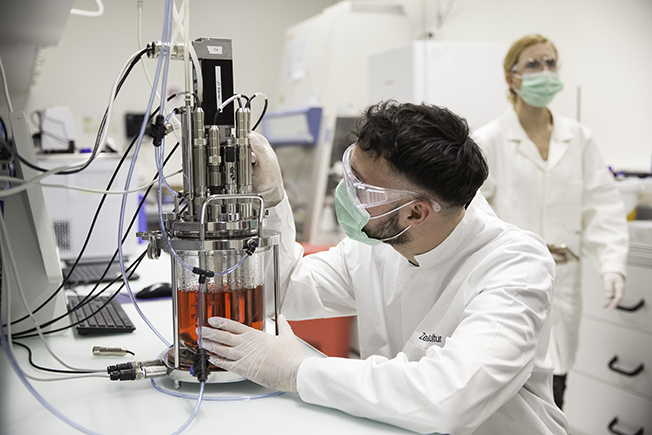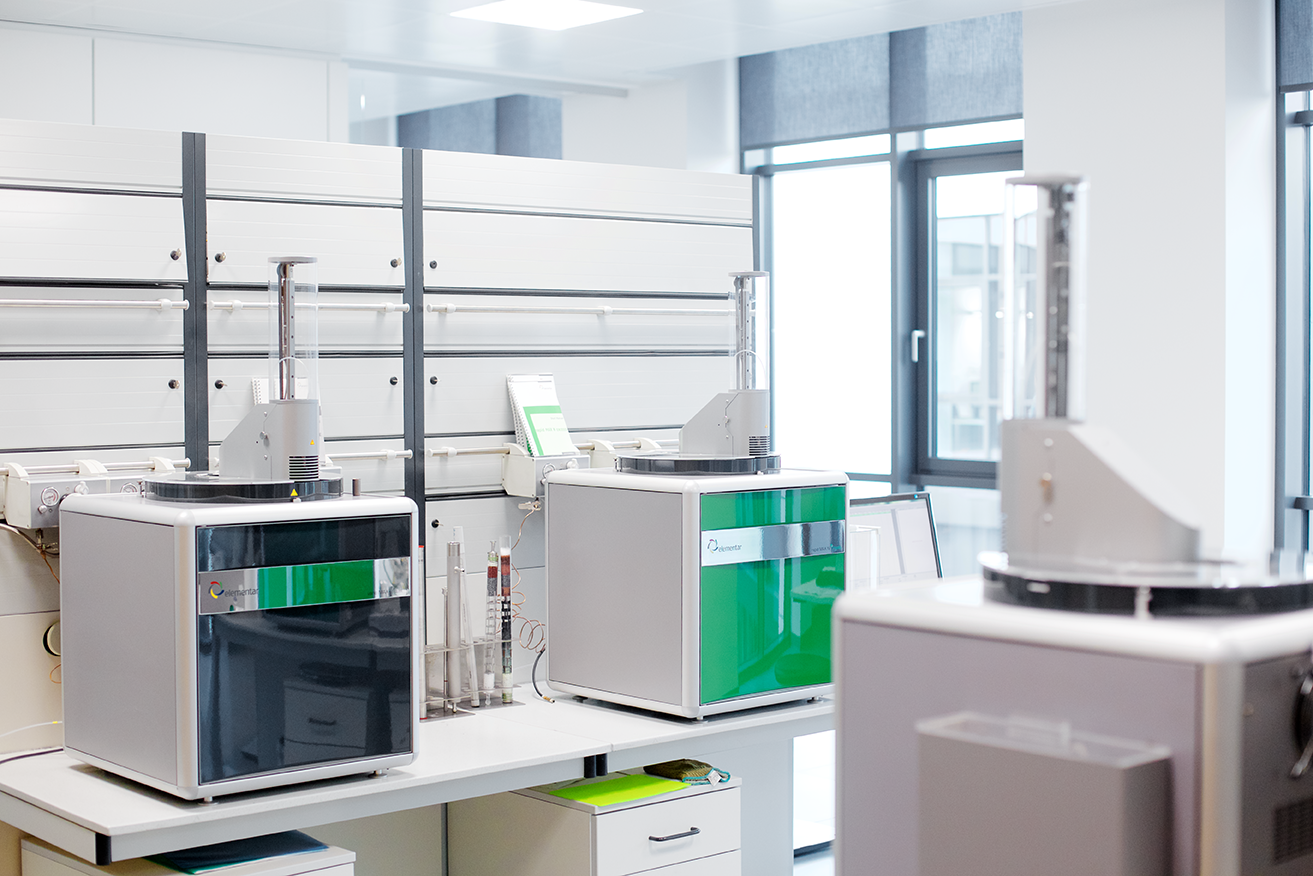

Cultivated meat’s winning formula
Growth factors are the heart of cultivated meat, driving sustainability, flavor, and food security for a brighter, eco-conscious future. Dr Catherine Elton from Qkine discusses the company’s innovations for the market, and the wider challenges for the sector

The process involved in creating meat from cell cultures is complex and involves various scientific principles. One crucial element is the use of growth factors. In just a few years, Cambridge, UK company, Qkine, has emerged as a global player in the field.
“Notably, we possess specialized expertise in the TGF beta family of growth factors, known for their intricacy and the challenges involved in manufacturing them while maintaining high quality and bioactivity,” reveals Dr Catherine Elton, CEO. “On the other front, we’re actively engaged in expanding the repertoire of growth factors required by our industry.”
As many know, there is currently a scarcity of species-specific growth factors. Even common ones such as bovine and porcine EGF are only available in human form. “Our mission is to broaden the availability, thereby bolstering research efforts and facilitating the transition to new developments and companies.”
Back to basics
Before getting into the science behind what Qkine offers, Elton provides a simplified explanation of why growth factors are vital. “They bind to receptors on the surface of cells, providing them with precise signals,” she says. “These signals instruct the cells to either multiply and grow, which is crucial for increasing biomass, or to differentiate into specific cell types. For example, they can guide a cell to become a muscle cell and then mature into a functional muscle cell.”

Costs and production
Cost, scaling and price parity remain issues for the cultivated meat sector. So, in what ways is Elton’s team at Qkine addressing that conundrum? “Recently, there has been a lot of discussion about whether growth factors, often mentioned in the context of scalability challenges, will indeed remain the most challenging component in media as the industry matures and achieves economies of scale. Personally, I don’t believe that will be the case. However, I do believe that we need innovation to ensure we’re developing the right components in preparation for scale.”
Qkine, for example, has the capacity to engineer growth factors, retaining their natural sequence while removing some of the natural control mechanisms that work well in the human body but are less suitable for bioreactors. “This adaptation can enhance their functionality,” Elton says. “By combining growth factor innovations with cell line development, creating cells that require fewer growth factors, and implementing intelligent manufacturing scale-up, we can address this challenge.”
As for production, whether it’s animal-free microbial fermentation or even plant expression systems such as molecular farming, Elton says she is generally neutral on the choice. “What’s crucial at this stage is not just how we scale but what we scale. Many of our innovations are system-agnostic, focusing on the functionality of the proteins themselves.”
Some cultivated meat producers, of course, buy in the ingredients necessary to ‘grow’ their meat, while others have that capability in-house. What advice would Elton have for startups looking to get into the field? “I believe that collaboration will play a pivotal role in the development of this industry,” she says. “It’s quite conceivable that as this industry matures, major players will seek to have control over critical aspects of their supply chain, such as growth factor manufacturing. They may opt to do this through licensing agreements or collaborations with specialized providers to establish in-house capabilities.”
However, she says another viable approach is to source these components externally while simultaneously building a robust and reliable supply chain. When it comes to growth factors, a notable challenge remains the limited number of suppliers around the world. “Any industrial process requires redundancy in the supply chain, something we learned during the pandemic,” Elton says. “Therefore, we should anticipate a hybrid model that combines both approaches.
“Ideally, I hope we’ll witness more co-location of companies with diverse specialties,” she continues. “This could involve supply chain partners and even energy providers sharing campus-style facilities, creating efficient ecosystems. Such co-location not only enhances efficiency but also contributes to sustainability by reducing the need to transport growth factors across the globe to establish local manufacturing facilities.”
The Qkine CEO – who similar to many in the industry did her PhD in biochemistry – says it’s important to remember not all growth factors are created equal. “We have what I’d describe as the ‘simple’ growth factors, such as FGF2 and IGF1. These are relatively straightforward to produce. In fact, we’re already witnessing the emergence of specialized companies that produce FGF2 at scale, which is a positive development.”
It’s quite conceivable that as this industry matures, major players will seek to have control over critical aspects of their supply chain, such as growth factor manufacturing
However, where the industry is encountering challenges is with the more complex growth factors, such as those in the TGF beta family. “Many of these cultures require at least one member of this protein family in their media,” Elton says. “These proteins are intriguing because they are complex and demand a very specific structure to be biologically active. Achieving this structure is no small feat and typically requires either expression in a mammalian cell culture system, which isn’t compatible with cultivated meat production, or a microbial system like ours. As of now, there are limited demonstrations of production in plants, but we are open to collaboration in this area, as we believe it could be a future challenge.”
Unfortunately, Elton goes on to highlight, she is also hearing reports from customers and academic collaborators about quality issues. “Given that these are bioactive proteins, ensuring their biological activity is critical. For instance, in the case of the TGF beta family proteins, they can exist as highly active complexes or as inactive monomers. Evaluating a supplier can be challenging, as it’s often hard to determine what you have in your tube or tank. These quality challenges are already affecting customers.”
Another big hurdle as the industry scales up is maintaining cohesive biology within a bioreactor. Stem cells, as well as primary satellite cells, are intricate biological systems that are not easy to scale. Variability within the mixed cell culture media ingredients can have an impact on the cells themselves. “Thus, ensuring consistent and scaled biology will be a major challenge for the industry,” Elton says.
When asked about consumer perception, sustainability, and ethical considerations, Elton admits they’re areas she has considered at depth. But, she says, “microbial expression has a long history of successful use in producing food processing aids and food enzymes”, which is how growth factors are classified in the supply chain. The challenge is whether we can scale it to the level required for cultivated meat production and whether issues like by-products will arise.
Ethics, she maintains, are crucial, and while she doesn’t see an inherent ethical problem with growth factors, as an industry, she insists players in the sector must remain diligent in engaging with consumers, understanding their perceptions, and addressing concerns from pressure groups and governments.

Building the supply chain
Meanwhile, given that a lot of the companies in the cultivated meat sector are serving other industries, pharma for instance, is there a danger that they might not place the required focus on building a credible supply chain for cultivated meat? “It’s true that many of these manufacturers are also serving the biomedical sciences, stem cell-based regenerative medicine, stem cell therapy, and drug discovery platforms,” she admits. “All these fields are experiencing rapid growth and share the desire for fully animal-free, well-defined, and highly reproducible media. As a supplier, you face the dilemma of where to allocate your resources – supporting one industry or the other.”
A further challenge revolves around engagement within the supply chain, which allows cultivated meat producers to effectively manage risks and collaborate with suppliers and partners to drive innovation and growth in the industry. Does Elton believe there’s enough of it? “It is picking up,” she responds, “especially as companies in the cultivated meat and seafood industries move closer to regulatory filings.
“Simultaneously, the growth of the academic research base is becoming increasingly significant,” she adds. “Collaboration is key in an industry of this magnitude, where no one can solve the challenges in isolation. From a supply chain perspective, proactive communication of innovations into companies, especially for media optimization, is crucial.”
An eye on the future
Clearly Elton wouldn’t be in the cultivated meat business if she didn’t believe in the potential. “I’m a strong advocate for this field, and I’m confident it will succeed,” she says.
“Over the next five years, there will be a strong push for innovation and growth factor optimization. Ideally, we’ll quickly identify the right growth factors for scalable bioreactor production and ensure their sustainable scaling within the supply chain. We’re adept at innovation, and our protein innovations can extend beyond just cultivated meat to areas such as plant molecular farming or hydroponics-based plant expression systems. Collaboration between smaller companies in the supply chain is crucial. As we scale up, I hope we can celebrate our achievements, as we’ll have overcome significant challenges to get to that point.”
For more information about Qkine, please click here
If you have any questions or would like to get in touch with us, please email info@futureofproteinproduction.com


%20ILVO%202.jpg)

.png)

